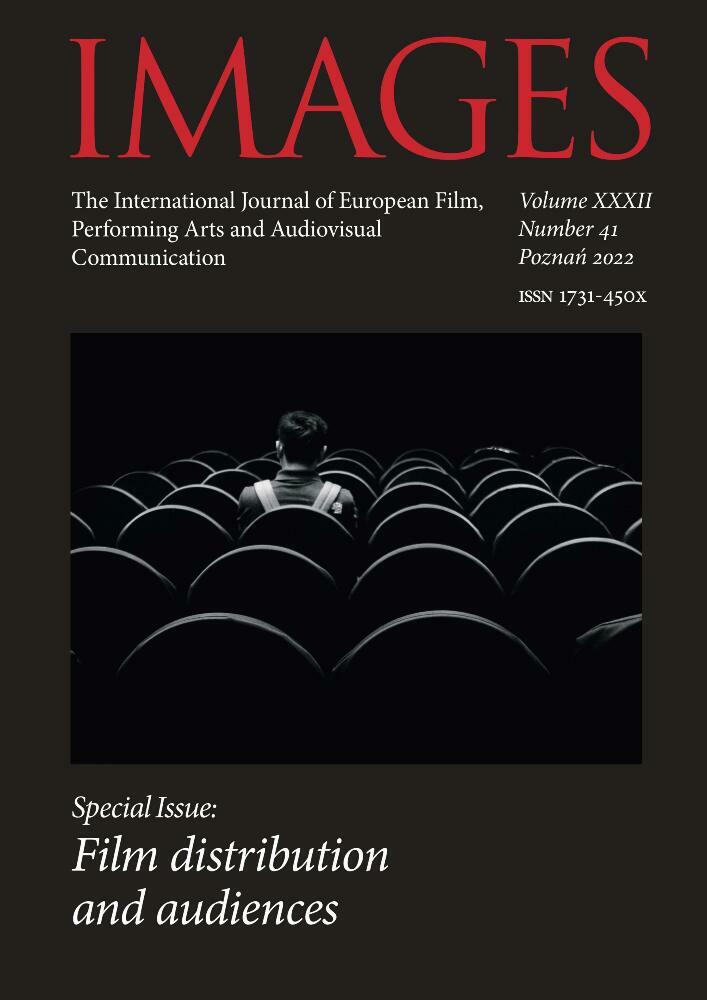Abstrakt
The Irzykowski Film Studio was founded in 1981 as an institution that allowed young filmmakers to start their careers directly after graduating from the Film School. The studio could produce medium-length and short feature films and documentaries as well as animation. Nevertheless, all these types of films, according to the statute confirmed by the minister, were not to be officially cinema distributed, since they were supposed to be treated as a film exercise, a kind of practice run. Finally, it turned out that the Irzykowski Film Studio productions were regarded as fully fledged films that could compete with films produced by Film Units (i.e., the professional organizational entities of the Polish film production system at the time) or short film studios. What is not without significance, most films (not to say: all) were politically controversial. Therefore, the leaders of the Studio decided to show films to the audience, but they could not do it officially by applying for referral to cinema distribution. In connection with this, they were shown at small film festivals, inner (unofficial) screenings, and illegally distributed on VHS tapes. By extension, the range of distribution was narrow, but, curiously enough, the films were attracting a lot of interest from film critics, audiences and... state authorities. The aim of this paper is to analyze the alternative distribution process that occurred at the Irzykowski Film Studio. What films were shown at festivals, at internal screenings, and which were illegally copied onto VHS tapes? Had all the films shown been censored? How did state censorship react to test screenings with the audience? How did the critics and audience perceive these films? Did the presence of films at festivals influence their cinema distribution? And finally: how did the promotion and festival distribution of these films affect the perception of the Irzykowski Film Studio among the state authorities?
Finansowanie
National Science Centre
Bibliografia
Adamczak M., Instytucja festiwalu filmowego w ekonomii kina, “Panoptikum” 2016, no. 16(23), pp. 20–37
“Biuletyn Festiwalowy Lubuskiego Lata Filmowego” 1984, no. 4
Bukowski H., Żytnia. Kto o tym pamięta?, “Biuletyn IPN” 2011, no. 1–2, pp. 73–81
Dutkowski J., Młode Kino Polskie – kartki z historii, “Powiększenie” 1988, no. 1–2
Elsaesser T., European Cinema. Face to face with Hollywood, Amsterdam 2005 https://doi.org/10.5117/9789053565940 DOI: https://doi.org/10.5117/9789053565940
“Filmowy Serwis Prasowy” 1984, no. 552
Jajko K., Garda M., Sitarski P., New Media Behind the Iron Curtain, Łódź 2020
Jak do kina. Rozmowa z VideoNOW-ą, “Tygodnik Mazowsze” 1985, no. 129
Kalendarium, “Film na Świecie” 1984, no. 301–302
Kalendarium, “Film na Świecie” 1984, no. 303–304
Klaczyński Z., Samorządność, “Film” 1983, no. 31
Kluska B., “Nie ma silnych, by to zlikwidować”, Służba Bezpieczeństwa wobec wideorewolucji, “Przegląd Archiwalny Instytutu Pamięci Narodowej”, vol. 9, Warszawa 2016, pp. 185–222
Laureaci Przeglądów Młodego Kina Polskiego, “Powiększenie” 1988, no. 1–2
Miller M., Kino moralnej próby, “Radar” 1983, no. 32
Nagroda “Don Kichota” 1984, “Film na Świecie” 1984, no. 309–310 https://doi.org/10.1038/309310a0 DOI: https://doi.org/10.1038/309310a0
Nagrody kulturalne „Solidarności” za rok 1984, “Tygodnik Mazowsze” 1985, no. 121
Obieg NOW-ej, ed. Ł. Bertram, Warszawa 2013
Po trzech latach – znowu Łagów, “Film” 1984, no. 19
Saniewski W., Wolny strzelec pod nadzorem, “Odra” 2020, no. 12
Saniewski W., Wolny strzelec pod nadzorem c.d., “Odra” 2020, no. 3
Titkow A., Inteligent niepokorny w kraju realnego socjalizmu, Toruń 2020
Varga B., Co-operation. The Organisation of Studio Units in the Hungarian Film
Industry of the 1950s and 1960s, [in:] Film units: restart, eds. M. Adamczak, M. Malatyński, P. Marecki, Krakow – Łodź, pp. 324–329
Wasilewski P., Świadectwa metryk. Polskie kino młodych w latach 80., Kraków 1990 Więch K., Re-sentymenty wobec PRL-u. Niezależna twórczość filmowa Studia Video Kontakt w Paryżu, [in:] 1984: Literatura i kultura schyłkowego PRL-u, eds. K. Budrowska, W. Gardocki, E. Jurkowska, Warszawa 2015, pp. 353–369
Licencja
Prawa autorskie (c) 2023 Emil Sowiński

Utwór dostępny jest na licencji Creative Commons Uznanie autorstwa 4.0 Międzynarodowe.

